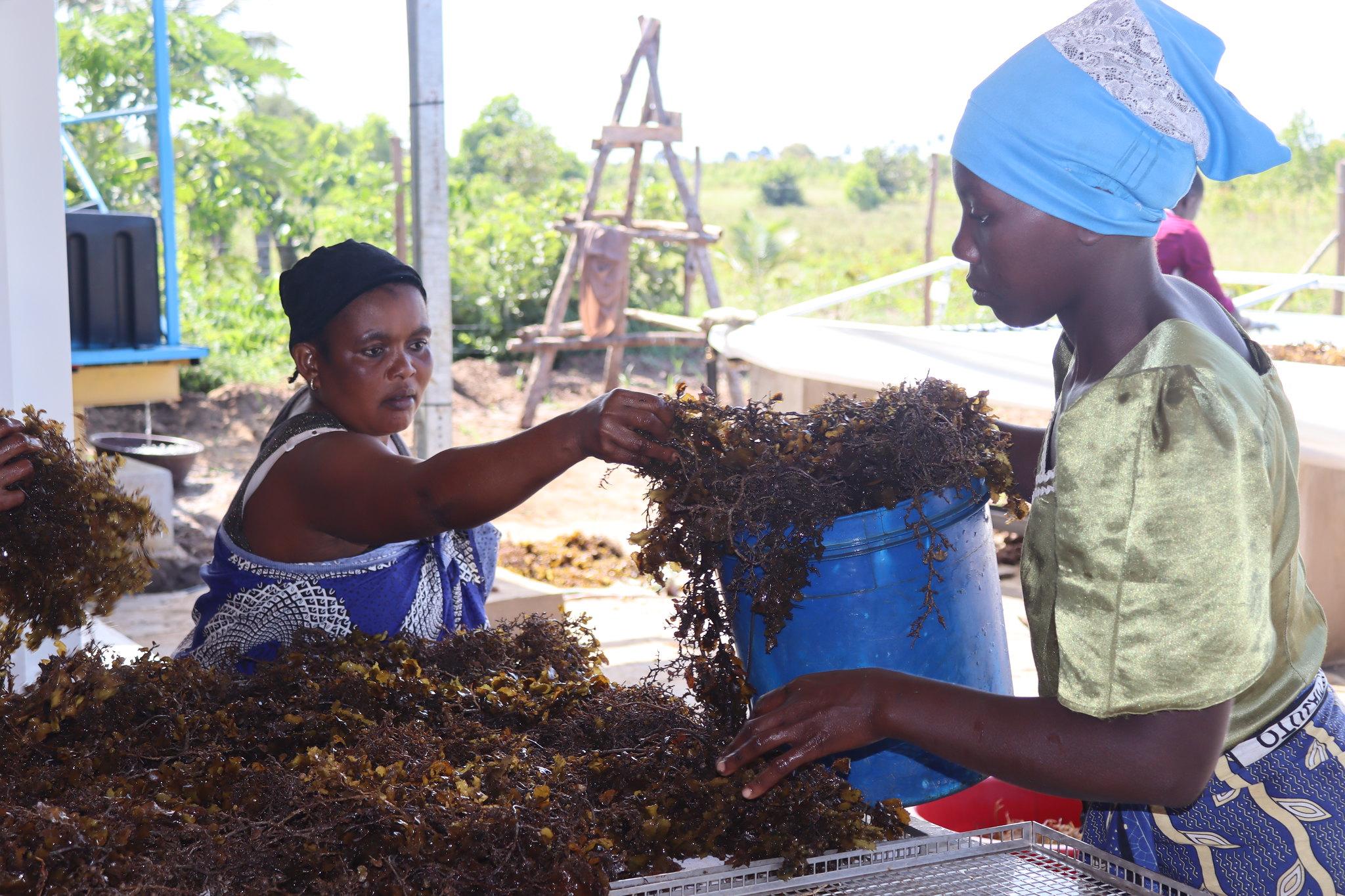Understanding IMTA Systems in the Context of the Blue Empowerment Project

An Integrated Multi-Trophic Aquaculture (IMTA) system represents a significant step towards sustainable and environment friendly aquaculture practices. IMTA systems, by design, promote the co-culture of species from different trophic levels, allowing for the recycling of nutrients and minimizing waste through the natural processes of biofiltration and nutrient uptake.
Specifically, waste produced by fish provides a valuable nutrient source for seaweed, which in turn contributes to water purification and the overall health of the ecosystem. This symbiotic relationship not only enhances the efficiency and sustainability of aquaculture operations but also aligns with global efforts to address environmental concerns associted with traditional aquaculture practices.
This brief, by researchers working with the project Aquaculture of seaweeds and fish: opportunities for blue economic empowerment and COVID-19 resilience in Kenya, explores the principles of IMTA, focusing on the aquaculture of fish and seaweed as part of the Blue Empowerment Project. It also explores the application of IMTA systems from a global perspective down to local technology implementations.
Implications of findings include:
- Access and empowerment are crucial for sustainable IMTA.
- Environmental and socio-economic barriers to IMTA adoption
- The role of women in enhancing IMTA sustainability and efficiency.
- The importance of supportive policies and community structures.
- The need for comprehensive training and capacity building.

